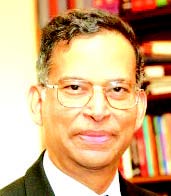
Eugenio Viassa Monteiro
Requests appear in life to solve a dormant or postponed problem because it does not seem urgent and could wait. Many of the issues related to education and healthcare should not wait and mobilize the entire public opinion to generalize quality primary education or to eradicate a disease, such as polio, HIV, rabies transmitted by dog bites, tuberculosis, etc., and keep alive the concern to create jobs.
A problem identified is halfway to its solution. People with responsibilities must think about the suffering of those affected when solutions come too late.
A few years ago, I saw polio eradication with great enthusiasm. A battalion of health agents was mobilized to vaccinate all children; a structure was launched at all border points to vaccinate the entrant children so that the virus could not enter and prosper through any of the very porous borders. Unfortunately, before the eradication, many people had polio, which left scars for life.
Medicines for HIV, to maintain it under control, are manufactured in Indian Laboratories at affordable prices for the whole world. In 2001, Yusuf Hamied, then CEO of CIPLA, challenged the MNC to sell their product at reasonable prices. Then, MNCs used to sell it (with three different products) for $10.000/year. Yusuf announced he would sell his product (all three in one) at $365/year. That was a glorious moment for India! At that time, there would be 200.000 taking the expensive drug when today, there are more than 6 million!
The problem of dogs running behind bicycles and motorbikes needs an urgent solution, especially in some States like Goa. You can pet dogs, but know how many people fell off their bikes or motorbikes because a street dog proved its strength by running and barking at people on the motorbike! I knew of a tragic case of fall and death due to a dog attack. It is urgent that owned dogs be on a leash and not walk freely. If there is no owner, the dog must be removed to exile to avoid harming passers-by.
Tuberculosis seems impossible to eradicate once and for all, as it can reappear.
Why am I referring to opportunities to do good? My friendly people called my attention to the Maldives Islands, surrounded by transparent waters and white sands. This tourist resort only existed because someone considered investing so tourists could rest there. Other paradisiacal islands around India need investments for making up conditions to attract those who want to rest for a while.
The Lakshadweep Islands are on the western Indian coast, and the Nicobar and Andaman Islands are on the Eastern shore. Are they paradises? Everyone says yes, as beautiful as many others, where one feels captivated by the sightseeing, the temperature, the transparency of the water, the white and clean sands like in Goa, the isolated milieu, the 75 species of seabirds at the Pitti Bird Sanctuary, etc. .
In fact, during the colonial period and after that, with the Soviet-type economic model in India, it would be impossible to think about the development of these islands.
Transforming an archipelago into a mini paradise cannot be done in a day, but it can. If there is determination, catching the opportunity can be very quick with the mobilization of the whole country to create alternatives of resting places like Goa without spending money outside our country.
Tour operators, transporters, house builders, hoteliers, and others must have the conviction that they are driving the development of islands where many can earn their bread and butter, and others can rest after an intense work period.
The Tata Group has already announced two hotels for the Year 2026, with 200 villas and 200 rooms, in two different Islands. Furthermore, Indian citizens in those mentioned Islands do not need visas.
In the meantime, good ferry connections must be in place more frequently from Mangalore, Goa and Kochi to Lakshadweep. Developing a mooring station for pleasure yachts, where the whole family can go and stay for some days, does not seem a big problem.
Cruise boats must design circuits touching Mumbai, Mangalore, Goa, Kochi and two to three Lakshadweep Islands, spending a day in an inhabited port or island.
Large cruise boats could practice two types of fares: one for the high season, aimed mainly at the affluent population and tourists from Europe, Japan, China and the USA and rich Indians, and the other, more affordable fare for the low season, aimed at people who cannot spend much —as many Indians who are very fond of doing tourism to know better and love their country.
Small boats connecting with cruise boats and others to take people from one island to another and to the cities on the Mainland, where they came from, must enter into action.
When necessary, prefabricated buildings with more than one floor could be residences for migrant workers and possibly for guests in the initial phase.
I leave some ideas that occurred to speed up the process of thinking and acting quickly, putting aside the psychological prejudices that we always find for everything: There is not enough time; there are no hotels; all food products will have to come from the continent; not enough capacity of transport, etc. Everything must be put in place quickly with the pioneering sense of opening a new gate to possibilities of rest for many and jobs for others, mainly for the Islands' inhabitants. All civil work must protect the environment without destroying corals or natural vegetation.
Sports people and coaches can think about the islands' sports and create schools for scuba diving, snorkelling, reef walking, canoeing, kayaking, sailing yachts, physical fitness, and yoga, both for Indians and from abroad.
The spirit of those going to start a new activity is in itself a sound stimulus, as a pioneer, even for those not wholly convinced to embark on the adventure but infected with the enthusiasm of their peers.
(The author is Professor at AESE-Business School (Lisbon), at IIM Rohtak (India), author of The Rise of India)
